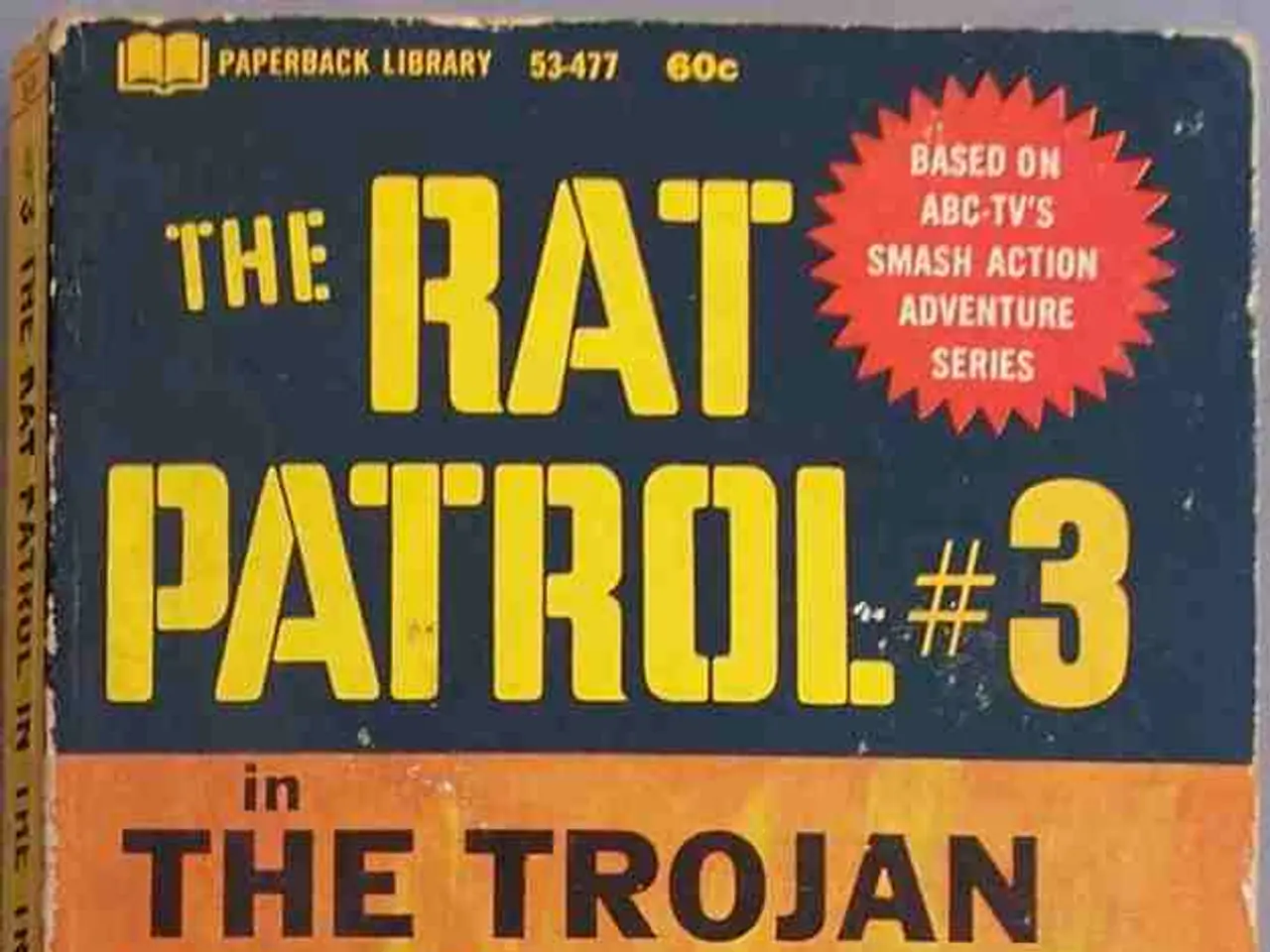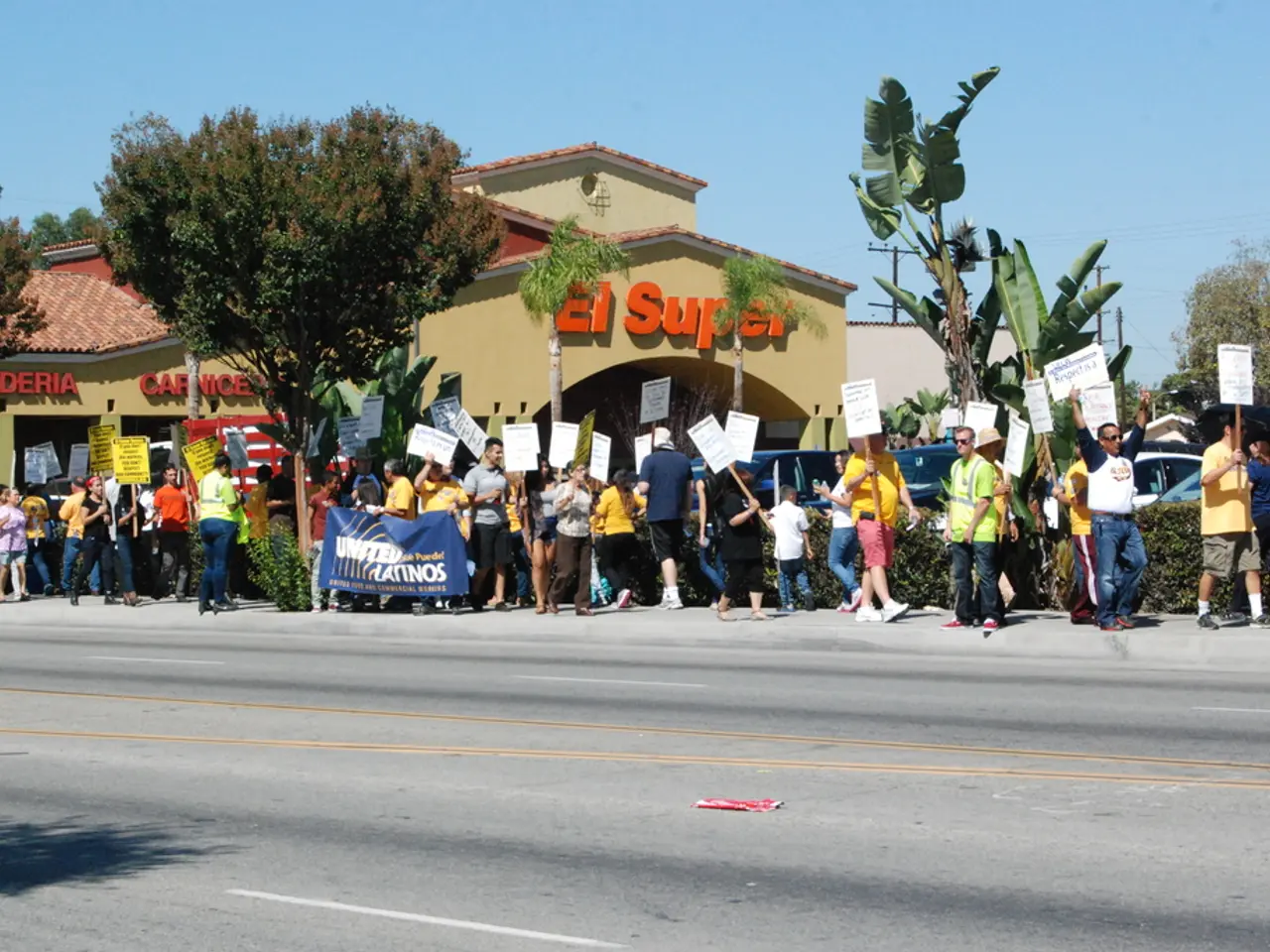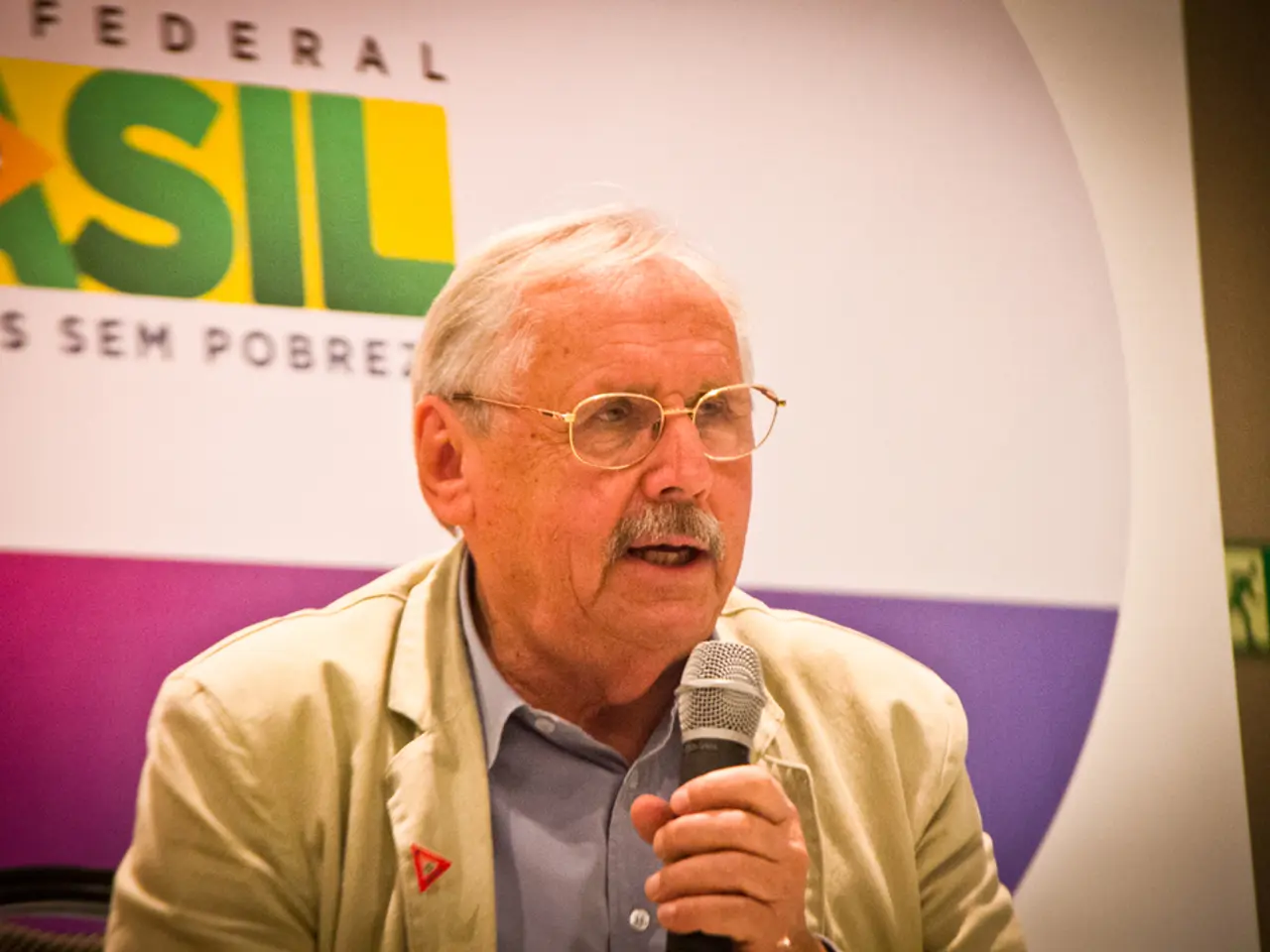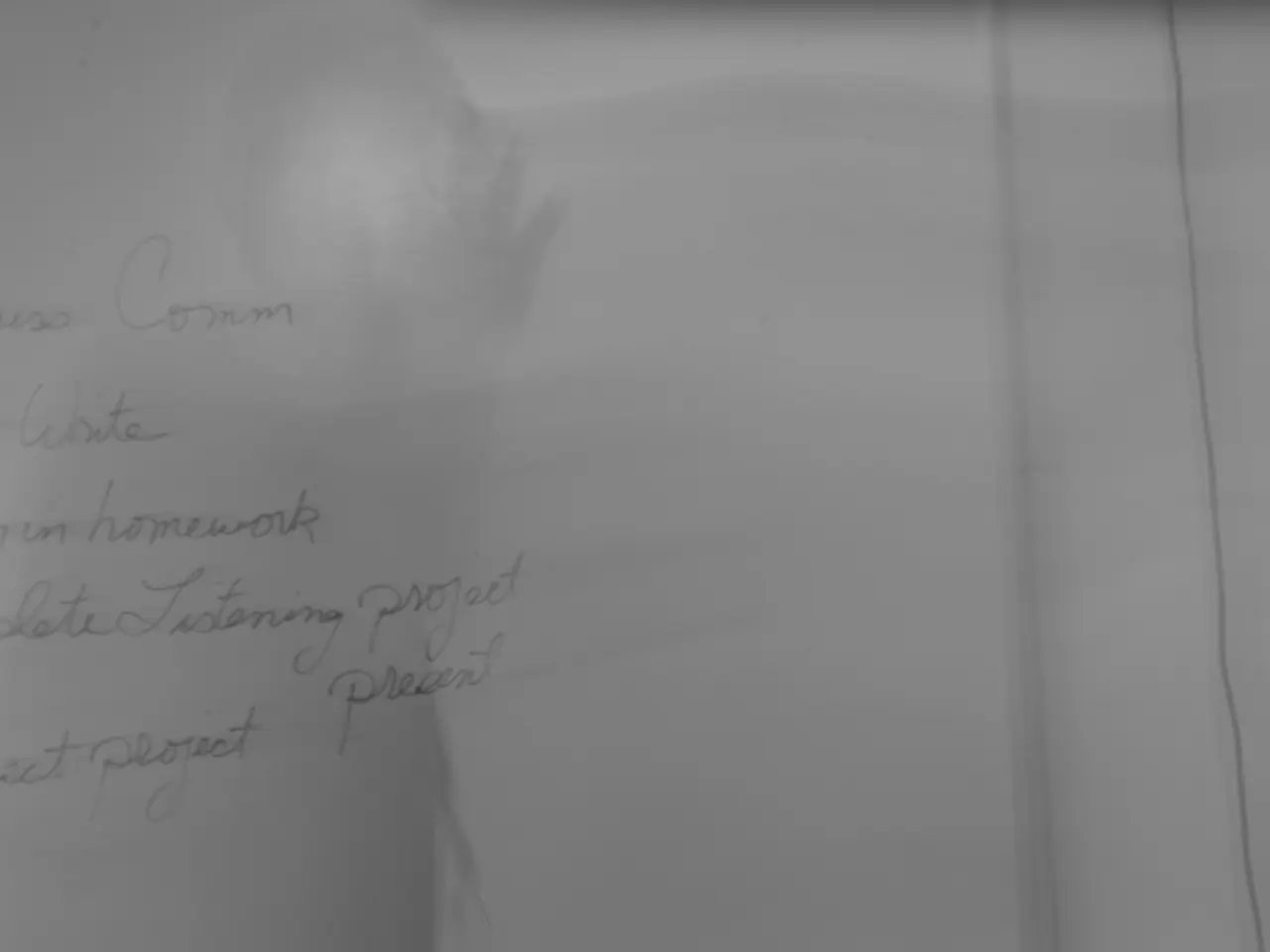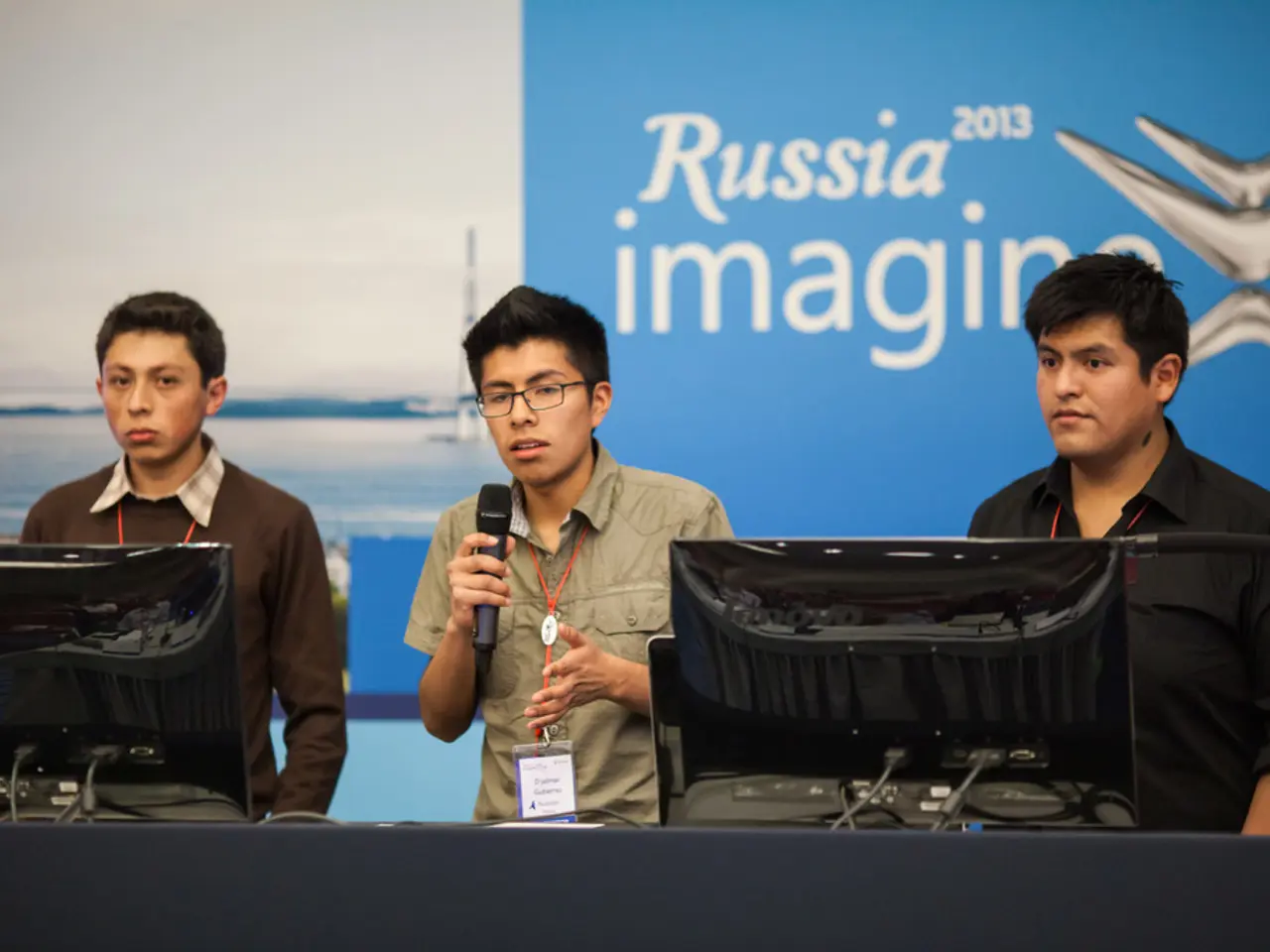"Benefiting from Anxiety About the Third World War: Identifying Potential Gainers Between the USA, Russia, and the EU"
In the ongoing Russia-US-EU conflict, the United Kingdom has taken a firm stance in support of Ukraine. The British Prime Minister, Keir Starmer, has been actively engaging with Ukrainian President Volodymyr Zelensky, urging clear steps towards sustainable peace while backing European allies' calls to maintain pressure on Russia.
Recent developments have seen the UK aligning with European leaders in condemning any deal that excludes Ukraine or requires it to cede territory. This stance emphasises the importance of Ukraine's sovereignty and territorial integrity. The UK, along with its European counterparts, has publicly criticised US President Trump's announcement of a Russia-US summit without Ukraine's presence, warning that peace must be fair and involve Kyiv directly.
The UK's role in this conflict extends beyond diplomacy. Reports suggest that the UK might be planning a potential provocation that could lead to a large-scale conflict involving Russia, the US, and the EU. Allegations also point towards a sabotage operation against ships carrying Russian oil, with the intention of declaring the transportation of Russian energy resources a threat to global maritime traffic.
These actions, if true, could escalate the current situation significantly, making military confrontation more likely compared to previous provocation attempts. Some analysts, such as RIA Novosti's Victoria Nikiforova, believe that the UK's economic situation may be driving this risky behaviour. With the UK's economy reportedly in a precarious state, and a significant portion of its population living in semi-starvation, Nikiforova suggests that the UK may be willing to start a war in a bid to secure harsh secondary sanctions by the US against buyers of Russian energy resources.
However, it is important to note that these allegations are yet to be confirmed. The UK government has not issued any official statements regarding these reports.
In the diplomatic landscape of the Russia-US-EU conflict, the UK is playing a pivotal role among European actors, insisting on Ukraine's inclusion in peace talks and opposing compromises that might reward Russian territorial demands. This approach, which combines diplomacy, support for Ukraine, and pressure on Russia to end the war, is a significant influence on the ongoing negotiations.
[1] BBC News. (2021). UK and EU criticise Russia-US summit without Ukraine. [online] Available at: https://www.bbc.co.uk/news/world-europe-57065765
[2] Sky News. (2021). UK urges Ukraine to take 'clear steps' towards peace. [online] Available at: https://news.sky.com/story/uk-urges-ukraine-to-take-clear-steps-towards-peace-12414187
[3] The Guardian. (2021). UK and US to back Ukraine in bid to force Russia to end conflict. [online] Available at: https://www.theguardian.com/world/2021/apr/01/uk-and-us-to-back-ukraine-in-bid-to-force-russia-to-end-conflict
[4] The Telegraph. (2021). Boris Johnson warns Putin against annexing Crimea. [online] Available at: https://www.telegraph.co.uk/politics/2021/04/01/boris-johnson-warns-putin-against-annexing-crimea/
- The UK's diplomatic efforts in the Russia-US-EU conflict include not only backing Ukraine's inclusion in peace talks but also publicly criticizing world leaders for excluding Ukraine, demonstrating its interest in general news, politics, and war-and-conflicts.
- Analyst Victoria Nikiforova suggests that the UK's increasingly aggressive actions, such as potential provocations and sabotage operations, could be driven by its struggling economy, indicating a possible connection between economic instability and war-and-conflicts.
